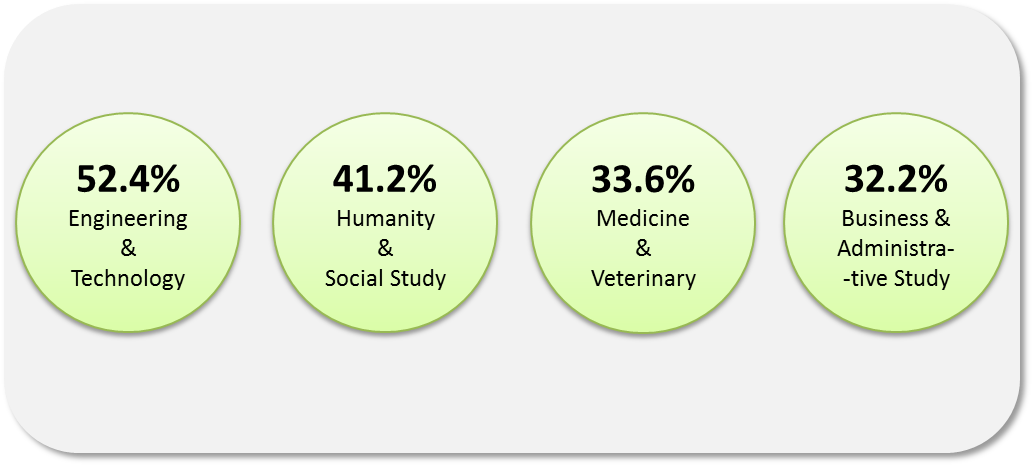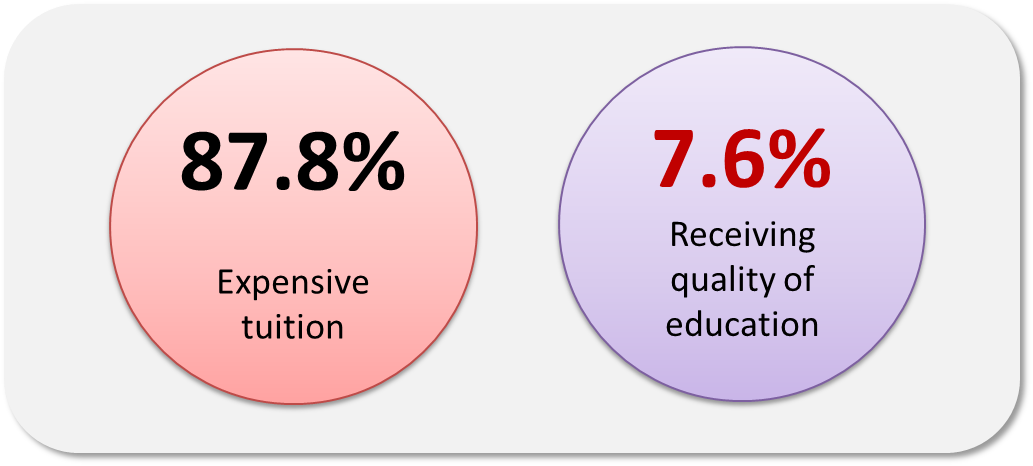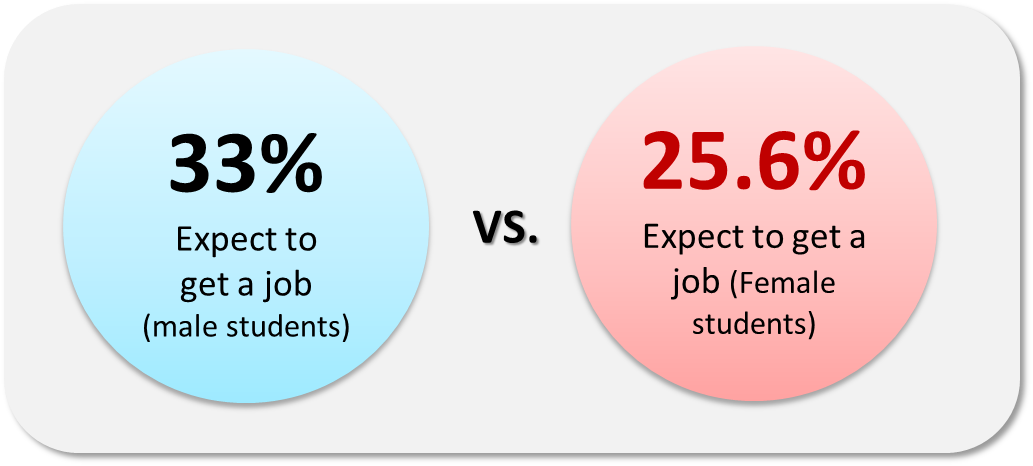A recent figure suggests that close to 80% of the Korean population in their 20's get into the university level programs, indicating that Korea has over 600,000 new graduates from university every year. The issue naturally arises for them to face the lack of job opportunities which are good enough to meet their expectations. While the discussion on the imbalance between supply & demand in the local job market exists, we would like to take further steps to see what they really feel about the competition and their view of higher education in general.
A local research firm recently reached out to 500 students who are studying at local universities to ask the below questions and here are responses.
1. Do you think the university degree is still important to become a competitive member of society?

Although 6 out of 10 students still said 'YES' to the university degree, it's important to note that the figure actually dropped over the last few years: It was 81.9% in 2009 and 75.8% in 2011. Young generation in Korean seems to have started asking questions clearly if they really need the university education for their next level in life.
2. Why do you think the university degree is still(or NOT) important?

Those who still value the university degree picked their first reason 'to avoid any disadvantages' which they might encounter in a highly competitive and fast-moving economy. It was followed by 'belief in the quality of learning and experience they can get from higher education.
However, a majority of those opposing to the above answered that the university degrees no longer guarantee a better job, which has been the main drive for a long time. The next reason was 'Opportunity Cost'. Again, students are asking themselves if it is really worth it.
3. What is the most important factor when selecting a university?

The priority still remains at the reputation and name value of the institution. Along with other key elements, such as subject availability and tuition level, students see the strong connection between the 'Degree' they'd get and the 'Employability', and consider this when choosing the right school for them.
4. What subjects are you more interested in?

The most popular subject is the Engineering & Technology and the preference has increased by more than 10% compared to 2011. (40.8% in 2011 > 52.4% in 2016). Humanity & Social Study were the most preferred 5 years ago, reflecting increasing job opportunities in the engineering & technology sector.
Engineering & Technology were also picked by 72.8% of students when they were asked 'Which will be the most competitive subject in 10 years?'
5. What are the main issues you find in higher education in Korea?

Most of the students respondended that the tuition level is too high in local degree programs. It was a universal answer from both gender and different regions. They also expressed that they're not getting enough quality of education compared to the level of tuition fees.
6. Do you expect to get a job with your current degree?

Only 33% of 500 university students answered 'YES' to this question, dropping from 46.9% in 2011. We can glimpse how young people are struggling in recent job market. We were also able to find more negativity from the male student and those located outside of the Seoul metropolitan area.
7. What do you think you need to improve your employability?

For the last question, students shared their view how to get out of the current situation become more market competitive. There were answers such as the 'Better scores' and 'Additional credentials/ certificates', but majority recommended following: 'Experience in relevant field' & 'Getting an international degree'.
This survey reveals quite an honest view from young Koreans and how much pressure they're under these days. Based on the answers received, we can come to the following conclusions:
1) The market demand is still high and students are eager to get a chance to learn from institutions outside of Korea, if they come with good quality.
2) Students are faced with expensive tuition fees even in Korea and threfore, the tuition level should not be the first and main issue when they consider the UK as the destination to learn higher education. It's rather the living costs that they're most afraid of and less number of financial supports available compared to other English speaking countries. (Or this may be just another assumption without confirming facts.)
If we focus on the key points for Korean students by improving their 'employability' with a good reputation and history, wider networks and affordability - UK should be able to earn more shares from the good prospects in Korea and students would eventually benefit from high quality education in the UK.
** Original research can be found here (in Korean) by 'Trendmonitor.co.kr'
